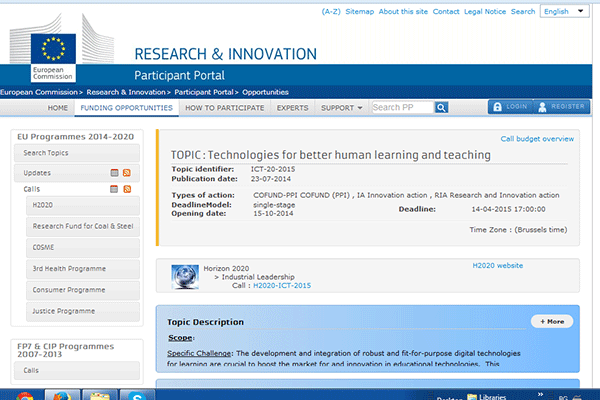
On January 1st, 2016, as part of the Horizon 2020 – ICT-2015-20 Program, an Adaptive trust-based e-assessment System for Learning (TeSLA) project will be launched.
The project will be monitored by a group for distant learning of the Universitat Oberta de Catalunya, Spain and has the budget of € 6 million. Amongst the 17 partners of the project are the most highly reputable universities offering distant learning in Europe: The Open University, London and Open Universiteit, the Netherlands, as well as the European Association for Quality Assurance in Higher education.
The e-education center at Sofia University under the direction of Professor Roumyana Peycheva-Forsyte is a project partner and coordinator of a work package related to the pilot testing of software solutions for identity identification and prevention of plagiarizing in online assessment; the latter is expected to cover 10 000 university students in Europe.
With its inclusion in this project Sofia University is given access and the possibility to implement the most recent technologies for certifying the identity of distant learning students with the aim of preventing false identity and/ or plagiarizing in compliance with all ethical, legal, and cultural aspects of the assessment process. This will provide the necessary basis for enhancing the degree of confidence in online assessment and in distant learning courses as a whole.
In view of guaranteeing plausible and tangible solutions the TeSLA project was designed by a consortium of institutions working in the domain of higher education and, specifically, in distant learning in cooperation with both technological companies specializing in security, encrypting and online identification, and agencies accrediting quality on national and European level.
The objectives of the course include:
The analysis and design of the appropriate teaching activities for e-assessment in compliance with the academic requirements guaranteeing both an effective teaching process and maintaining the specifics of online assessment.
Improving the e-assessment process by implementing tools and resources in the teaching activities that identify the personal data of the learners in view of guaranteeing their identification and authorship.
Holding of cascade pilot research of the TeSLA e-assessment system, which should warrant the equal possibilities when taking into consideration the wide variety of teaching contexts in the various high academic institutions and providing identification and authorship of the learners in the e-assessment process.
Free of charge provision of the main version of the TeSLA e-learning system to the academic institutions in view of improving the e-assessment process in the latter.
Holding of a series of training seminars aimed at familiarization with the TeSLA system in order to use the latter for the optimization of the e-assessment process is envisaged.



